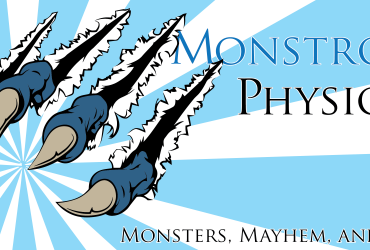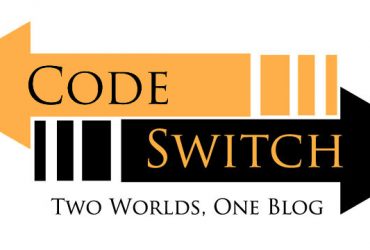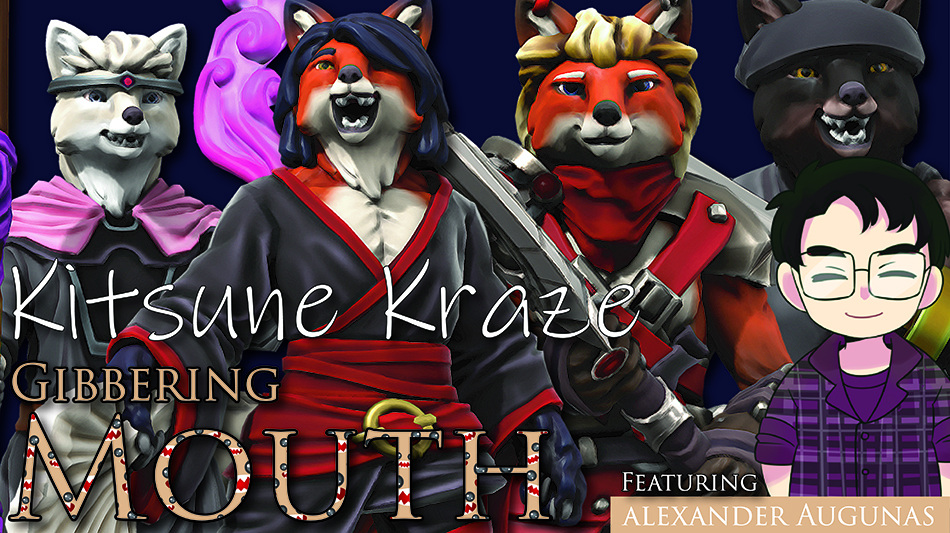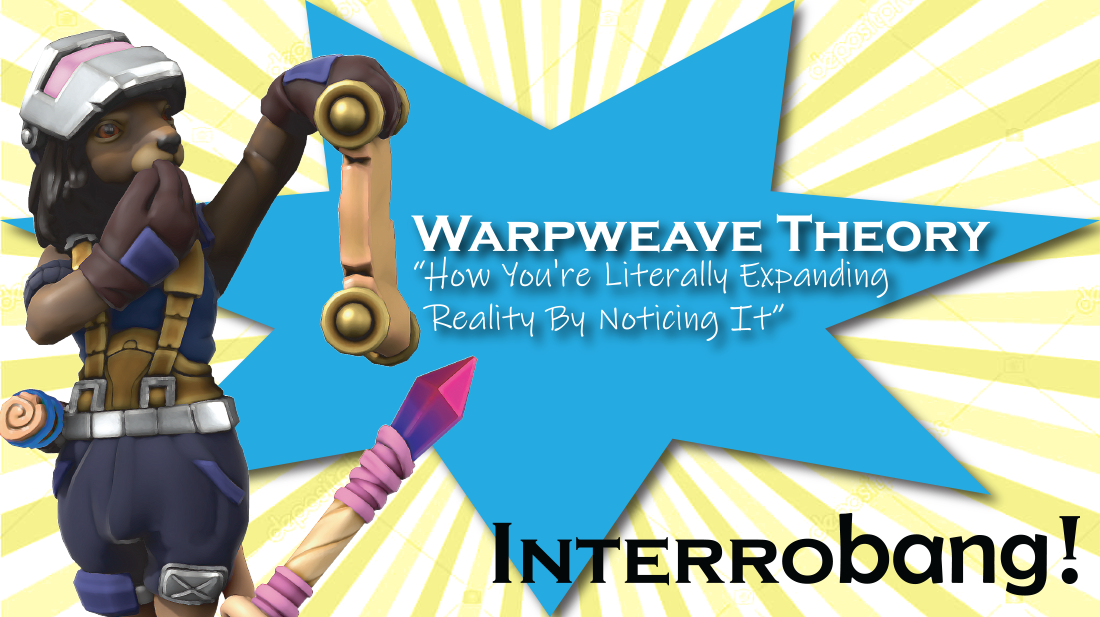Money—it literally makes worlds go round, be they the real world or fantasy worlds. When you get right to it, money as a societal construct is what allows us as a species to barter with one another on a playing field where everyone can be assured of the relative value of their goods and services. Talking about economics is complicated because the economy itself is complicated, but I’m going to try and talk about it anyway today.
We largely live in a world where prices often seem static until they mysteriously and often abruptly change for reasons that we might not understand. Well, if you understand basic economics, price changes start to make more sense. Basically, any given object or service has a value that’s determined by two things—what the object is worth both to the seller and to the buyer. But before we get too in-depth in that concept, we need to talk briefly about mediums of exchange.
Swap Force
Okay, so let’s say that you’re living in a world with no monetary mediums. Well, what does that mean? Let’s say you’re a pig farmer, and you have a three squealing piglets, but lack any means to repair the roof to your home. You know that Jo, who lives down the street, is excellent at fixing broken roofs, so you approach him and ask him to do the work and in exchange you’ll give him your pig. In this case, neither the pig nor the roof is the medium of exchange despite the fact that both (the pig and the labor on the roof) are being exchanged.
Instead, this “swap system” is what is known as a barter system, an economic system where two groups swap things that have for things they need without using an intermediary medium, namely money. And in this specific instance between you and Jo, it worked out for you—you got your roof fixed and Jo got a piglet. So if bartering makes people happy, why ever switch to intermediary units. Well, there is a real good reason for mediums of exchange, so let’s talk about your neighbor Borris.
Borris works down the street, and he owns a vegetable farm. You think vegetables are delicious, so you ask Borris to trade you a bushel of vegetables for one of your piglets. But gasp! Borris is a vegetarian, and is therefore uninterested in your swine-shaped meatball. You don’t get any vegetables and Borris doesn’t get a piglet he doesn’t want. This stumbles upon one of several disadvantages to barter systems, which ultimately gave rise to mediums of exchange.
- Bartering doesn’t happen if all parties involved don’t value the other side’s goods. In the case of Borris, the value of your pig (which was worth a fixed roof to Jo) is nothing.
- There is no common measure of value between trades. Your friend Jo might be mad that eight hours of his life (the time it took him to fix your roof) was worth the same amount as a small bundle of vegetables to you.
- It is tricky to divide goods. For instance, if Jo wanted half a pig to fix your roof, then what the heck do you do with the other half of a pig? The only other option is to inflate the value of the roof-fixing by giving him the whole pig, which results in a net loss for you.
- You cannot “borrow” things effectively. Well, you can, but we all have that friend who wants “a hamburger today for ten dollars tomorrow,” right?
- Wealth is difficult to store. Pigs don’t live forever, and if you’re selling fixed roofs, then how long do you have to DO that service?
With this in mind, let’s introduce mediums of exchange.
Exchanging Everything
To put it simply, a medium of exchange is any unit that is used to represent the value of another good or service that can be swapped for goods and services. Basically, its money but it doesn’t have to be money in the way we think of it. For instance, Bottlecaps in the Fallout games are a medium of exchange—their only purpose is to act as a medium in which the residents of the wasteland can assign value to items.
Using a medium of exchange circumvents most of the economic disadvantages of barter systems—the medium acts as a common measure of value, everyone wants the medium because it is universally accepted as an exchangeable currency, submediums and supermediums can be created to assure fair transitions, and wealth can be stored easily if the medium itself is easily stored. Its no wonder that gold pieces are all over the place in Pathfinder, or that credits are universally accepted throughout the Empire in Star Wars.
But there is a secret to mediums of exchange, both in fantasy games and the real world, that isn’t overtly apparent, and that’s the simple truth that value isn’t as static as we think it is.
You’re Worth What You Pay For
Okay, so I want to imagine a shiny new supercomputer, capable of playing all the video games and doing all the work you can imagine. Let’s pretend that this super computer is for sale for $3,000 USD, and therefore it’s worth $3,000 to you. If you go to the store and buy it for $3,000, then you’ve validated that value and your net wealth has remained unchanged—you spent $3,000 (–$3,000 value) but gained a computer that you value at $3,000 (+$3,000). The net total is +$0.
Now let’s say that you wait until a sale happens, and the company puts that same computer for sale at $1,500. You buy it in a heartbeat, because you know it’s a $3,000 that you only spent $1,500. In this case, according to economy theory, your net wealth actually just increased by +$1,500. You obtained an item worth $3,000 to you (+$3,000) but paid only half price for it (–$1,500). This leaves you with a net gain of $1,500. That being said, the reverse is true—if you buy an item worth $3,000 (–$3,000) that you only value at $1,500 (–$1,500), then you’ve basically lost $1,500 of net worth.
Economics is fun! And entirely in your head.
That’s because while we like to think of money as having this solid, stationary value, the truth is that we as people decide how much things are worth to us. How much our labor is worth, how much specific parts and baubles are worth. Everything. The price that we are willing to pay tends to relate back to supply (how much of the thing there is) and demand (how much people want it. High supply + low demand = cheap item, while high supply and high demand = expensive item. (See $69.99 Hatchables.)
So this Holiday season, when you’re looking at the gp cost of a magic item, think to yourself, “Is this item worth the price to me?” and “How did I get this?” Because if you find an item in a dungeon (–0 gp) that’s worth 4,000 gp to you, you’ve just raised your net wealth by 4,000 gp. But regardless of what any rulebook says, if you find a magic item that’s worthless to you, your wealth never increases—even if you wear it.
At least, that’s what economic theory says. And boy, is economics confusing!
Alexander “Alex” Augunas has been playing roleplaying games since 2007, which isn’t nearly as long as 90% of his colleagues. Alexander is an active freelancer for the Pathfinder Roleplaying Game and is best known as the author of the Pact Magic Unbound series by Radiance House. Alex is the owner of Everyman Gaming, LLC and is often stylized as the Everyman Gamer in honor of Guidance’s original home. Alex also cohosts the Private Sanctuary Podcast, along with fellow blogger Anthony Li, and you can follow their exploits on Facebook in the 3.5 Private Sanctuary Group, or on Alex’s Twitter, @AlJAug.






